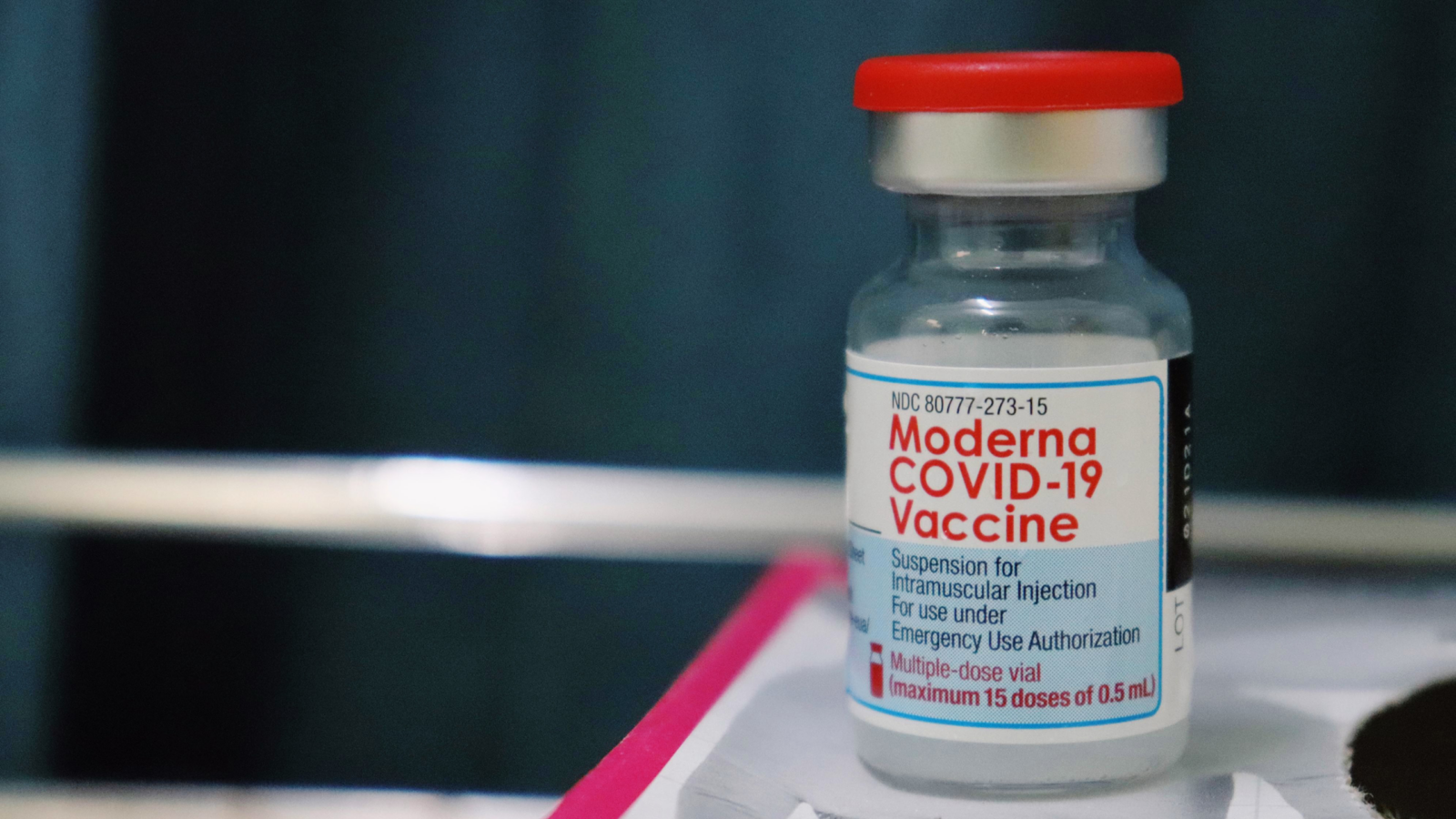Good morning and happy Friday.
A line of billionaires and decamillionaires is already forming in Starbase, Texas, hoping to be next. Travelers on a SpaceX rocket successfully became the first civilian astronauts to perform a spacewalk on Thursday morning. The highlight of the company’s Polaris Dawn mission saw billionaire Jared Isaacman, who paid to be on the trip, and Sarah Gillis, a SpaceX engineer, spend seven minutes each outside their spacecraft while testing space suits that spent more than two years in development.
With that kind of R&D turnaround, maybe the companies’ shared CEO Elon Musk could ask SpaceX engineers to take a look at Tesla’s Robotaxis which, with every delay, seem more and more like they’re in a galaxy far, far away…
Moderna Is Still Stuck in Post-COVID Limbo

Nobody wants to be a one-hit wonder — Moderna is still searching for its post-COVID chart-topper.
On Thursday, at its annual R&D Day investor event, the pharma giant walked a tightrope trying to convince shareholders it can both develop a new portfolio of drugs and keep costs down in the process. Unfortunately, shareholders opted for surgery.
Put That in Your Pipeline
The Cambridge, Massachusetts-based COVID-19 winner currently has two products on the market: an RSV vaccine that utilizes the same mRNA technology behind its COVID-19 vaccine, and said COVID-19 vaccine. Demand for both have been tepid to say the least, forcing the company to downwardly revise its sales outlook for the year from $4 billion to a range of $3 billion to $3.5 billion. It’s also developed something of a reputation for spending more on R&D as a percentage of sales than industry peers, based in large part on confidence that its mRNA tech could eventually power a whole host of drugs. For investors, that’s becoming a headache — a message that’s been made loud and clear.
That’s why Thursday’s event, which was focused on highlighting its pipeline, still featured promises of steep cost-cutting; to assuage investor anxiety, Moderna promised to cut roughly 20% of its R&D budget over the next three years, or the equivalent of $1.1 billion from its annual budget by 2027. It’s enough to reshape how the company sees its future playing out through the rest of the decade:
- The cuts include the discontinuation of five different projects in its pipeline, though Moderna said it still expects 10 product approvals through 2027. Those include five different respiratory shots that have positive phase three trial results, led by three — including a combo flu/COVID-19 shot — that the company says it will submit for approval this year.
- Still, the firm says it now won’t reach a break-even point on an operating cash cost basis until 2028, when it expects $6 billion in revenue. That’s a delay from previous projections of a break-even point in 2026.
Shares of Moderna subsequently plummeted over 12% by market close on Thursday. The firm promised its war chest is still plump enough to last until 2028 without the need for additional equity, though not everyone is buying in. “Investors are unlikely to believe this until further credibility,” Jefferies analyst Michael Yee wrote in a note.
Trial and Error: Moderna isn’t the only pharma player that had a tough day. Roche revealed disappointing results this week from an early-stage clinical trial of a closely-watched oral weight-loss drug candidate, sending shares down roughly 2%.
Final Week to Invest Before Planned Nasdaq Listing

This problem-solving company is planning a Nasdaq listing – and you have just a few days left to invest before their current offering ends.
With over 15M tons of waste asphalt shingles dumped in landfills each year, Sky Quarry isn’t working to just solve a problem—they’re helping create a potential $4.4 billion market opportunity. Using proprietary technology, they transform discarded shingles into sustainable diesel oil, construction materials, and more, turning waste into value.
They’ve already begun tapping into that with 211% annual revenue growth. And they’re not slowing down, with plans to produce 2,000 barrels of oil per day at their flagship facility opening next year.
The final day to invest in Sky Quarry’s current offering is 9/18.
Become a Sky Quarry shareholder ahead of their planned Nasdaq listing.*
McDonald’s Lengthens the Meal Deal Wars
Maybe it’s the intrinsic value to the bottom line.
McDonald’s announced on Thursday that its $5 summer meal deal, which was only supposed to last through June, will now be extended into December. McDonald’s may have kick-started the meal deal fast-food wars this summer, but new combatants are still joining the fray, and McDonald’s isn’t ready to tap out yet.
Wheeling, Dealing, and Mealing
McDonald’s brought in the $5 meal deal just a month before it revealed in its Q2 filings that sales had dropped for the first time since 2020. Consumers were finally reaching the end of their rope on price increases; prolonging the meal deal’s lifespan suggests that McDonald’s seems to think it has a long way to go before consumers feel much better about prices, even if we are headed for a long-prophesied rate cut.
McDonald’s wasn’t the only fast-food chain to bring in a budget-friendly deal over the summer, and it’s not the only one to drag out the war, although it has upped the stakes by pushing back the armistice date:
- Last month, Burger King announced it would extend its own $5 meal deal through October.
- Some chains are still clambering onto the bandwagon. Last week, Dunkin’ Donuts announced a fall menu that includes a $6 meal deal.
Venti Dreams: Starbucks is going to need a lot more than a meal deal to turn its fortunes around — at least, according to its new chief executive. CEO Brian Niccol came to Starbucks from Chipotle, which has placed among the 20 best-performing stocks on the S&P 500 this year, so investor hopes are high. In his first missive to staff, Niccol said the chain needs to focus on reattaining a convivial atmosphere so customers will want to hang out rather than just buy a massively convoluted drink and run.
Christie’s Adds Classic Car Auction House to Its Luxury Portfolio
With the art market running on empty, Christie’s is turning to cars.
The venerated, high-end auction house said Thursday that it has agreed to buy Gooding and Company, a classic auto auction house. That will open up its luxury offerings to the machinery parked in its customers’ garages.
Restart Your Engines
McDonald’s, Baja Fresh, Wetzel’s Pretzels, General Mills, and Kraft Heinz — dealers in grub for the common man — all said this year that consumers have finally had it with inflation and are cutting back costs in a weakening economy. The upper-class dilettantes have had it, too: Christie’s said auction sales fell 22% in the first half of this year compared to the same period in 2023. Rival Sotheby’s reported a 25% drop.
When the weight of the world is on your shoulders, it doesn’t matter whether they’re draped in off-the-rack Calvin Klein or fitted Armani. With less money coming in from its traditional art and luxury item core business, Christie’s took the chance to splurge for new customers:
- People “who collect art or other luxury items … also collect cars,” Christie’s CEO Guillaume Cerutti told the Financial Times — a duh statement, but one that Christie’s turned away from when it left the vintage auto market in 2007. Among vehicles Gooding has sold this year are a 1933 Bugatti Type 43A roadster, which went for roughly £2.9 million ($3.8 million), and a 1938 Alfa Romeo 8C 2900B Lungo Spider, which went for $14 million. According to classic car magazine Magneto, 14 of the 50 most expensive vintage car auction sales were made through Gooding.
- Previously, Christie’s had left the classic car market not long after an embarrassing episode in which it had to withdraw an incorrectly classified Auto Union D Type Grand Prix car. Santa Monica-based Gooding’s executive team will remain intact with the purchase, leaving its expertise in place to restart the auction house’s engine.
Reserve Price: Christie’s did not disclose the price tag for Gooding, only saying it was the auction house’s priciest acquisition in 20 years. If it ever entertains a rebrand, given the frequency of Beetles sold, they could call it the Old Volks Home.
Extra Upside
- Future Perfect: Mastercard buys threat intelligence company Recorded Future for $2.65 billion.
- It’s Settled: Navient agrees to $120 million settlement with the Consumer Financial Protection Bureau over student loan practices.
- Energy Boost: Leaders at Nvidia, OpenAI, Google, and more attend a White House meeting on AI infrastructure and energy usage.
Just For Fun
Disclaimer
*This is a paid advertisement for Sky Quarry’s Regulation A Offering. Please read the offering circular at investor.skyquarry.com

